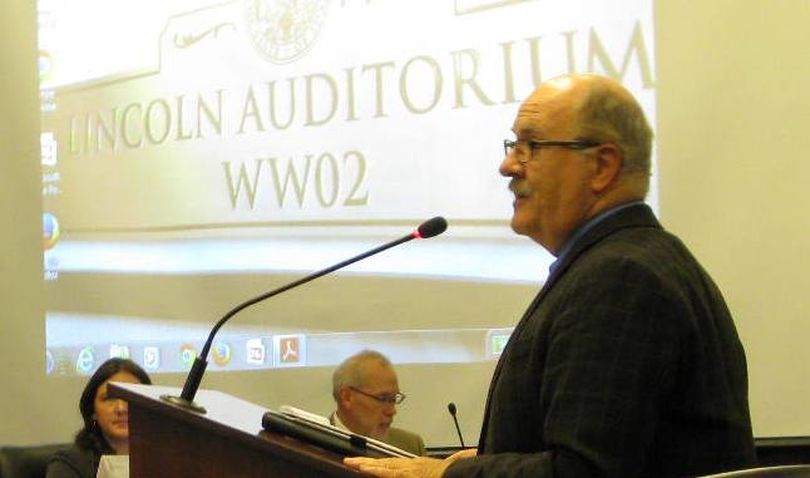Public comments on school funding formula address flexibility, fairness, charters, more…

The legislative interim committee charged with looking to update Idaho’s school funding formula took public comments this afternoon, and announced that it’ll also be traveling the state to hold public hearings in September and October. “We can’t do this work unless we know what the concerns are and the priorities are of the folks that it will impact,” said committee Co-Chair Rep. Wendy Horman, R-Idaho Falls. “We offer that invitation to all.”
Among those who spoke today:
Steve Smylie, a former state lawmaker and candidate for state schools superintendent and a current member of the West Ada school board, told the committee it has “an awesome set of responsibilities in front of you.” He said, “This is not an easy job – I know there will be some sharp differences of opinion among stakeholders in this.” Smylie called for solutions that don’t take money from one group and give it to another; giving individual school districts more options; and considering state support for school construction costs, which now fall largely on local districts with differing abilities to pay. He said both for school construction and with regard to supplemental tax levies, districts now have far different resources – and individual residents within districts bear widely differing tax burdens – to provide the same educational services. “That’s something we have to deal with,” he said. “How are we going to continue a system that we are relying on supplemental levies that are unequalized?”
Don Keller, founder of Sage International School, urged the panel to consider a funding formula that recognizes students’ differing needs. He said that was something he quickly learned about when his charter school first opened. “I was a biology teacher before I started as an administrator,” he said.
Rob Winslow, executive director of the Idaho Association of School Administrators, told the lawmakers, “Fiscal stability is still the No. 1 priority for superintendents, because certainly many line items in the budget have been reduced since the recession, districts are still struggling to maintain adequate educational programs,” and 94 districts have supplemental levies in place. “Costs continue to increase every year,” he said. “Our focus and hope for this committee is that we support a funding formula that is actually designed for actual costs in school districts.” He called the new teacher career ladder a “good step forward,” and said IASA would also like to see classified employee salaries addressed. Other funding issues include the new mastery approach and how it affects funding; funding for specific services that some students need; and addressing funding for administrative staff, which he said “has not kept up.”
Karen Echeverria, executive director of the Idaho School Boards Association, said, “The first request we would have for this committee is to provide as much flexibility as possible at the school district level - getting rid of line items and letting school districts and charter schools determine how to spend those funds.” She said that will allow them to learn from each other, and said schools would welcome accountability measures to make sure they use the funds wisely. She also called for addressing funding for classified school employees’ salaries; and addressing funding for school buildlings and facilities and “the high bar of sixty-six and two-thirds passage for bonds.”
Tom LeClaire, head of the Coalition of Idaho Charter School Families, said, “Our group has been in support of strong funding for charter schools, and in support of funding kids as they move from one school to another. There are thousands of mobile students, because there is more school choice than ever before.” He said the Idaho Virtual Academy, an online charter school, starts each year with around 2,000 students, but usually picks up another 500 by January. The group has worked on legislation, which passed this year but has a sunset clause, to address funding for students who move from school to school during the year. “We thank you for the efforts to support fair funding for charter schools in Idaho,” he said. “We support an approach where funding follows the student as students move. … This is a concept that I think would greatly benefit today’s modern public school system, with all the mobility we have.”
